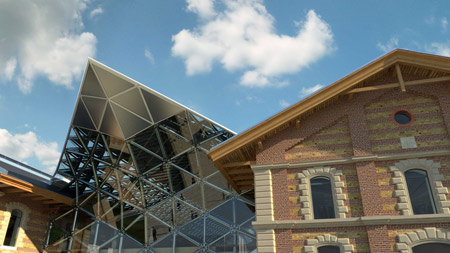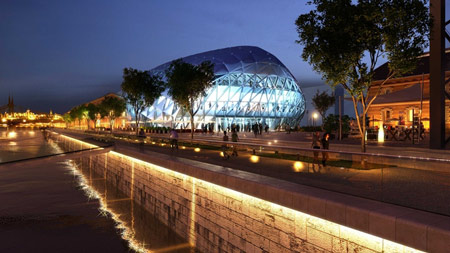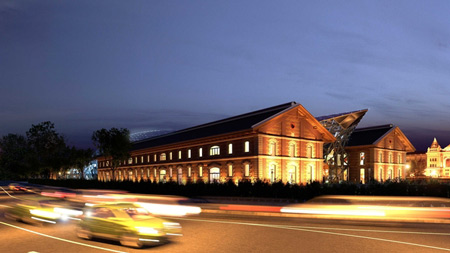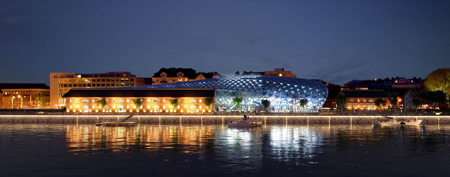CET Budapest
CET Budapest by ONL [Oosterhuis_Lénárd] 2006-2011
Between 2007 and 2009, I worked as an architect on the design of CET Budapest project. I was majorly involved in the building permit design and tender phases.
The 27,000 sqm development on the banks of the river Danube in Budapest, Hungary is used as a cultural and commercial centre with a large event hall, retail units and catering units. The project involved the renovation of the old warehouses and building a whale-shaped, 'non-standard' extension between them. Construction was somewhat delayed but completed in 2011.



CET = Central European Time. CET is also a synonym for a whale. The Mixed Use Development CET at the Kozraktarak site between the Petofi and the Szabadsag Bridge is both.
The CET concept refers to Budapest as an important metropolitan centre in the heart of Central Europe. The CET shape somehow refers to the smooth and friendly streamlined body of a whale. The new CET development has the potential to put Budapest once again on the map of the world. Name and shape of the CET symbolizes its cultural potential and commercial pole position in one of the best preserved cities in the world.
The river Danube fascinates in Budapest for its fast flow on its trajectory downward from the German Schwarzwald to the Black Sea. While the Danube both separates and unites Buda and Pest, the CET aims at re-establishing visual contact at this point between the two sides of the river. Newly planned inviting terraces will visually open the once hermetic Kozraktarak to the Technical University of Budapest and the Gellért Hotel.
The body of the CET landmark building is developed along the flow of the Danube. Its architectural and urban expression evolves with the direction of the flow. The CET’s origin stems from the side of the city centre, grows in size between the two parallel existing buildings of the Közraktárak and then culminates at the south side, the side of the National Theatre and the new Cultural Centre MuPa. The striking landmark building represents the state-of-the-art in architectural design and building technology, not unlike the old long ago removed Elevator Building from the 19th Century wherefrom the goods were distributed by rail to the 6 warehouses which originally occupied the banks of the Danube.
Transformation from Old to New. Three of the 6 warehouses are now remaining, and the brief requests to keep at least 60% of the volume intact, while rightfully demanding to take away the first 20m of the 2 warehouses closest to the city to create a small square to improve the connection with the city south of the beautifully renovated Vásárcsarnok. Taking this into consideration, the design team proposes to develop the Közraktárak landmark complex in a smooth transition from old to new. The first two warehouse buildings will be carefully renovated while adjusting the size of the vertical windows as to open up the hermetic nature of the buildings to the Danube, to the interior gallery and reach out to the adjoining district with the successful Ráday utca nearby.

Site: Közraktárak, Budapest Client: Porto Investment Hungary, Budapest Date: 2006-2010 Total Floor Area: ca. 27000 m2 Design: ONL [Oosterhuis_Lénárd] Design team: Kas Oosterhuis, Ilona Lénárd, Rafael Seemann, Paulina Gurak, Michael Gorczynski, Lidia Badarnah, Jan Gasparik, Petr Vokal, Marthijn Pool, Attila Bujdosó, Judit Márku, Péter Romvári, Béla Káli Engineers: MTM, SMG-SISU Renders: Homologue

